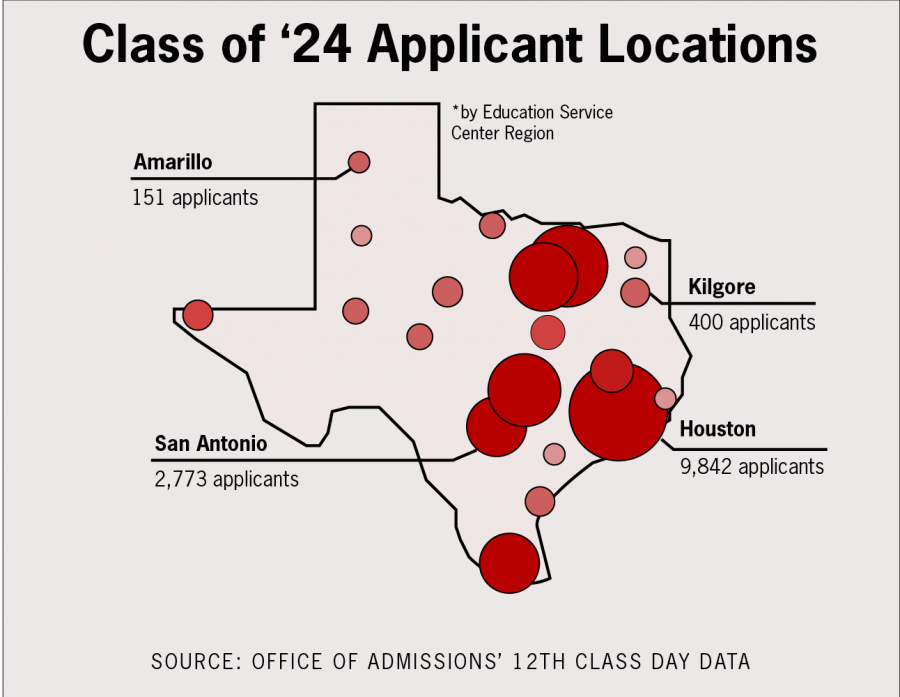UT senate passes resolution making standardized tests optional
April 19, 2021
Editor’s Note: This article first appeared in the April 16 issue of The Daily Texan.
The Senate of College Councils passed a resolution on Thursday urging the Office of Admissions to make standardized test scores permanently optional, making admissions more equitable.
Senate diversity coordinator Suseth Muñoz said standardized testing was created to keep certain populations out of higher education institutions.
“The history of standardized testing is very much racialized,” said Muñoz, an English, government, and youth and community studies junior.
Miguel Wasielewski, executive director of admissions, said admissions officers review applications holistically, including standardized test scores, high school rank and transcripts but no one aspect of the application is worth more than another.
“A holistic review is truly looking at everything and how it interacts together and produces a picture of what the student has accomplished and what they may be able to contribute to and benefit from here at UT-Austin,” Wasielewski said.
Wasielewski said UT will decide whether a test-optional admissions process will continue in the future if it is beneficial for the students.
“When a school relies on just that score and throws out all the other things, then you’re really limiting incorrectly yourself from having the right information to make that decision about whether or not the student can handle the work at your institution,” Wasielewski said.
UT waived standardized testing requirements for the 2021-2022 and the 2022-2023 application cycle because of the COVID-19 pandemic and received more than 66,000 applications for freshman admission to the class of 2025 — the highest ever and an increase of almost 9,000 from the previous year.
Wasielewski said the office cannot attribute the increase in applicants to any one factor, but said waiving the standardized testing requirements was helpful to some applicants because it made the application easier.
Neuroscience freshman Avery Bowman said she grew up in an affluent part of Houston where some of her peers paid $75 to $500 an hour for standardized test tutoring. She said she spent weekends studying by herself on the test but thinks her time could have been better spent on other activities.
“(Students) could be spending that (time) doing stuff for Model UN or for National Honor Society or volunteering, and being an active part of their community … rather than working through algebra problems or saying where a comma needs to go in a sentence,” Bowman said.












